The Thirteenth Month
THE OPENING GALLERY
42 WALKER STREET, NEW YORK
THE OPENING
THURSDAY JUNE 8th, 6 - 8pm
&
THE CELEBRATION OF THE THIRTEEN MOONS
TUESDAY JUNE 13th, 6 - 8pm
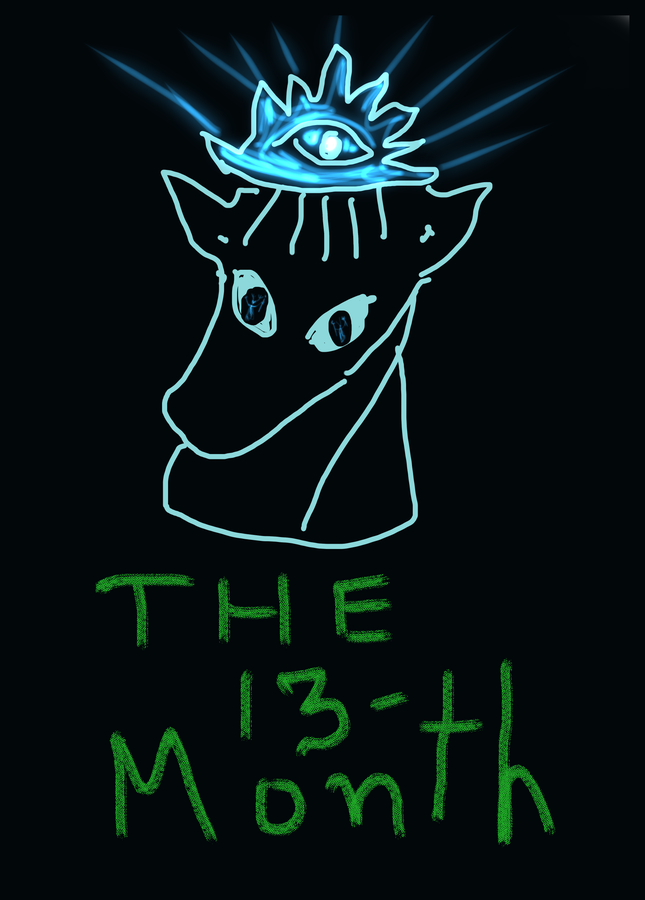
What happened to the Thirteenth Month?
A natural year has thirteen moons - thirteen lunar months. In my version of the story, the thirteenth month represents Dionysus, the god who was excluded from the twelve of Mount Olympus. Dismembered by his siblings, he was sacrificed and shared as a holy sacrament.
Dionysus transcends into the body of Orpheus, Zagreus, Christ, Krishna, and Prometheus.
Mankind condemned the thirteenth month along with its benevolent and sensual god. Having turned against Nature,
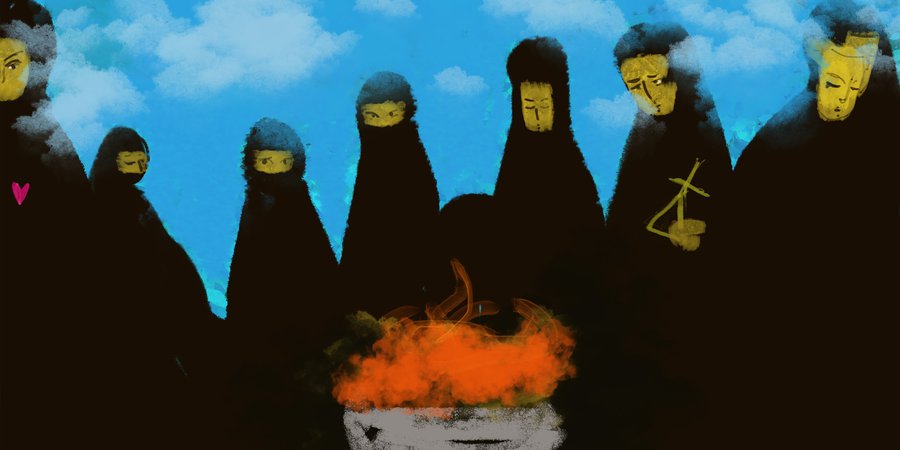
our civilization is reaching its extinction.
New horizons open up for human existence. Pretentious moral and mundane values will collapse to the sounds of music. We will dance naked, adorned with flowers. Words will become songs to communicate with the animals. Our vibrations will liberate us from social roles. United, our minds will migrate to a new world.

When Neoplatonists and Neopythagorians longed for the Orphic Messiah, Diodorus of Sicily recorded three Dionysus incarnations: Zagreas, Iachus, and Sabazios.
Orpheus, Dionysus, and Christ, who were prosecuted as infants, were worshipped and shielded by the Selines and the Nymphs, the angels and the animals, keeping them safe in nature. They were adored in their death. They were devoured as holy communion and reborn. They lived ritually in a theatrical repetition in which the public participated as the chorus of their drama.
This audience participated in a reenactment through dance and music, transporting the past into the future in expectance of the coming of The messiah, the one who overrides time and death. In the meantime, they spoke of this extraordinary being who spread love, bread, and wine and peacefully celebrated human existence, and through the art of teaching, he praised and honored nature. He befriended the animals and understood the spirit of the plants. He taught humans how to make wine from grapes and extract oils from plants. He examined the herbs and cured the wounds. He taught music, and he healed the soul. This wonderful creature enveloped art and knowledge with love.
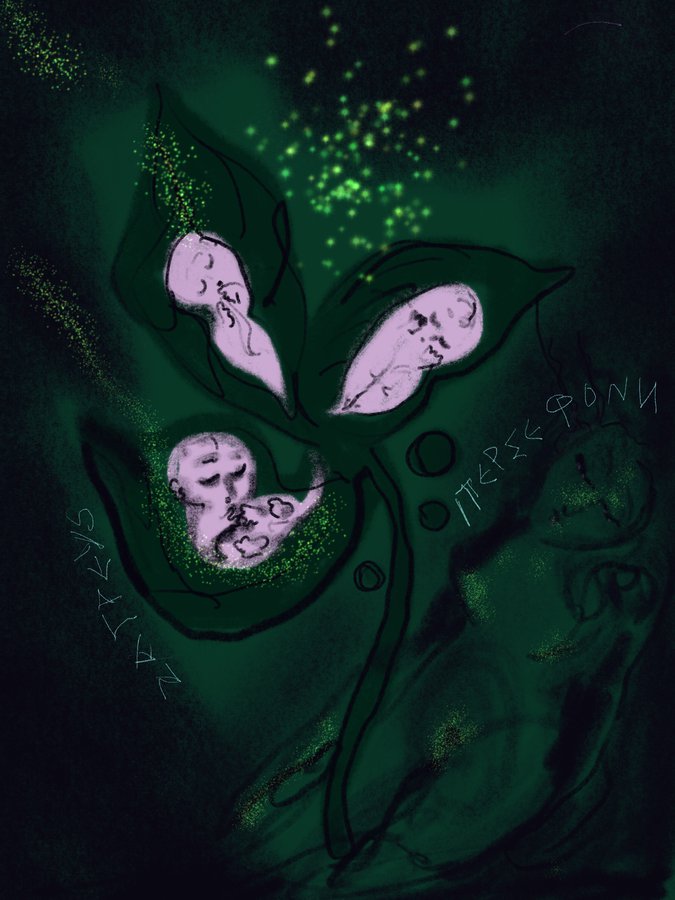
The celebration of Dionysus exorcised Phobos, the god of fear and panic, the son of Erebus, and Night. In the darkness of the winter, people got hungry and cold and bloodthirsty. They became carnivorous. They lied to themselves about the pain they created by enslaving their victims. By exploiting Nature, they break the pact and create a chain of ugly necessities based on power games. By poisoning Nature, they created a so-called civilization in the name of authority. In every race and religion, God imposed harmful laws. Although people accept their fate, they still dream.
Orpheus’ semi-godly state constitutes the sacrifice of the innocent, the burden of humanity. By dismembering and devouring him, the amazons carry him within, making their body Dionysus’s tomb. Their body became a fertile shrine to him in which to be reborn. Impregnated by his spirit, they deliver him again, attesting to his death. What the logic could not take, art received. Art wash, dress and decorate it. Not only did art not hide the corpse, but she also exposed it in a sacred procession. This is the resurrection; the dismembered body polymerized. The repetitive resurrection became the yeast of the revolution.
The night manifests the celebration. Masked faces in animal skins, holding torches, flutes, and symbols dive into a nomadic anonymity of tantric music. The masquerade abolishes the Identity and erases any responsibility for the acts. A new honorary language distributes titles, sacred names, and ideas during these rites. Then, the forty days of lent follow the catharsis before the day of resurrection. This day is chosen to be forty days after the hidden 13th moon.
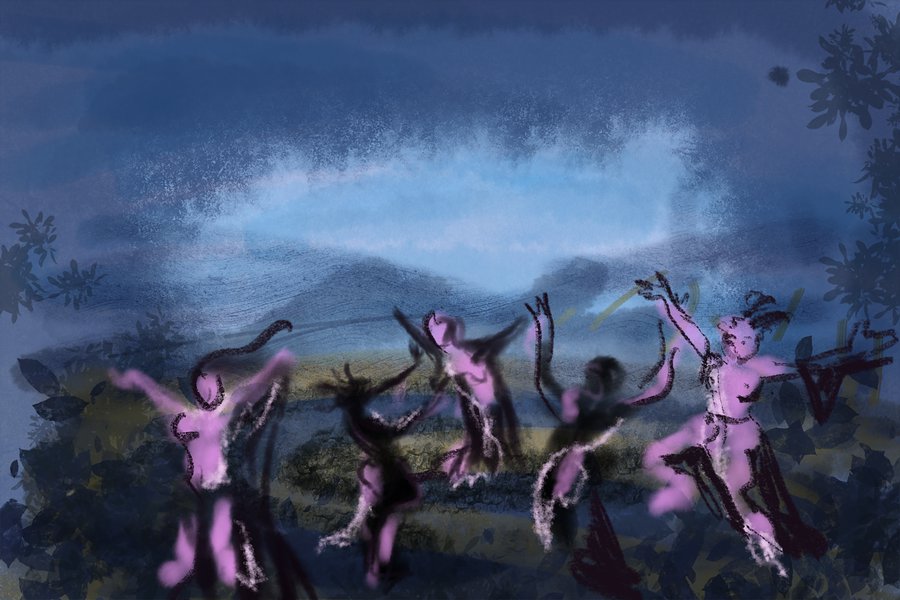
“I am the True Vine,” says Christ.
Clement of Alexandria reflects in Jesus another Dionysus. In the Last Supper, He defines His blood as the wine. He offers His blood as the communion wine to be received by the twelve Apostles, just like the Twelve Months received their thirteenth brother.
In Delphi, Dionysus was worshipped as Bacchus by women who, every two years, brought offerings of sweets and pies. Singing and dancing, they honored the divine seed that impregnated the winter within the dark cores of every existence. They adorned themselves with oak branches, the beloved tree of Gaia. Gaia saved infant Dionysus, smothering the flames of fire that devoured his mother with ivy.
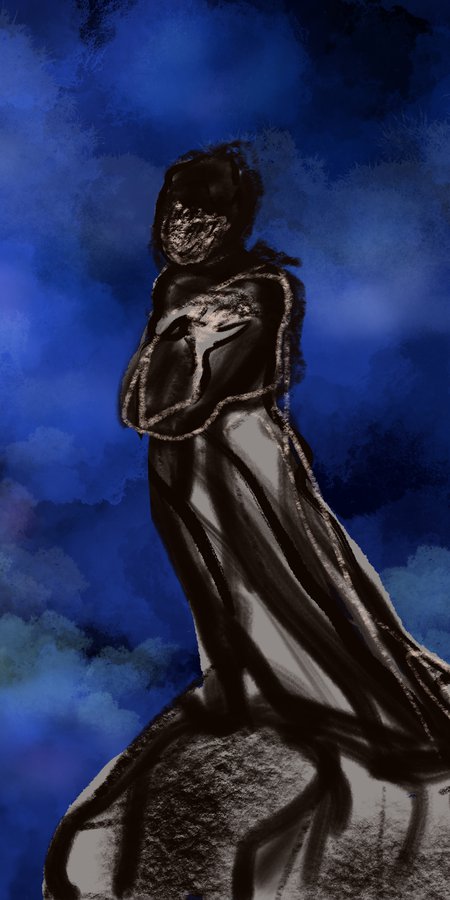
Christ is also a victim of power. Through him, his mother, the Virgin Mary, worshiped for pain, as was Demeter, Isis, and Nature. He was also named Adonai, maybe from the underworld union of Adonis and Persephone.
Hera persecuted Dionysus the way she persecuted Hercules.
To escape her fury, the two boys fled to Asia. In India, they were worshipped as Krishna and Shiva.
Megasthemes of Ionia claimed that in India, for over 6000 years, Dionysus Bacchus was worshipped as Vagissa. There he taught satyric dances, initiated agriculture, turned nomadic people into farmers, and made wine from the climbing plant, Bilva.
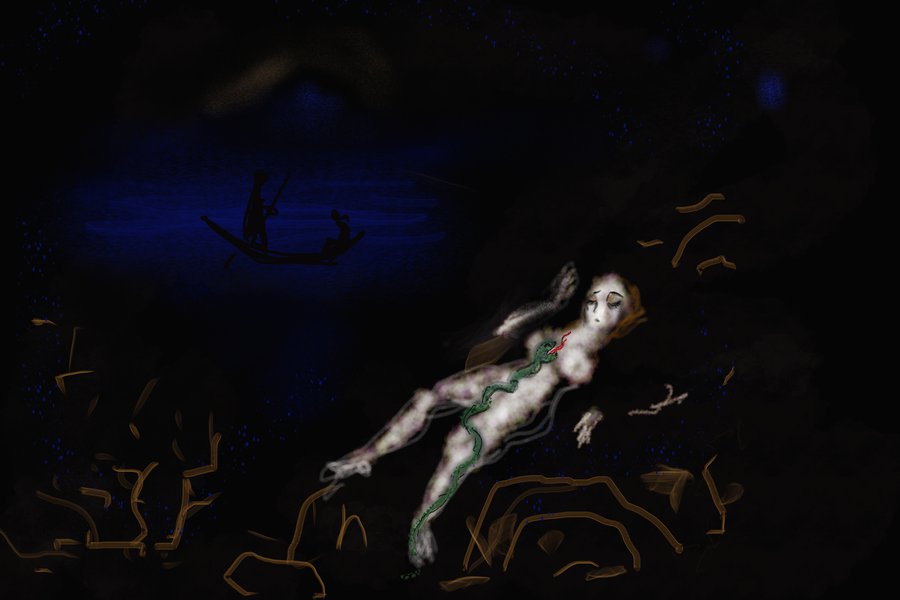
Persephone of the Annunciation
Zeus turned into a snake and impregnated Semele. Hera summoned the Titans, who deceived baby Dionysus with a magic mirror. The infant dived into the mirror, just like Narcissus, and dissolved into infinite pieces like an amoeba. Zeus created the human race from the ashes of his son and the Titans. Isis conceived Horus from the dismembered body of the dead Osiris. That is why Osiris Dionysus was worshipped, and Herodotus mentions how they share so many similarities. Plato referred to the planets as visible gods because of the correspondence between the celestial bodies to the Olympian gods such as Jupiter, Mars, and Venus. The star corresponding to Osiris Dionysus is Sirius. Although the star is invisible to the naked eye, it was known to ancient and primitive cultures worldwide by similar names such as Surya, Sur, and Sear.
Sabazios Dionysus was born in Phrygia. In Phrygia, Zeus, Rhea, Demeter, and Persephone morphed into snakes and made love. Sabazios was celebrated on Saturdays.
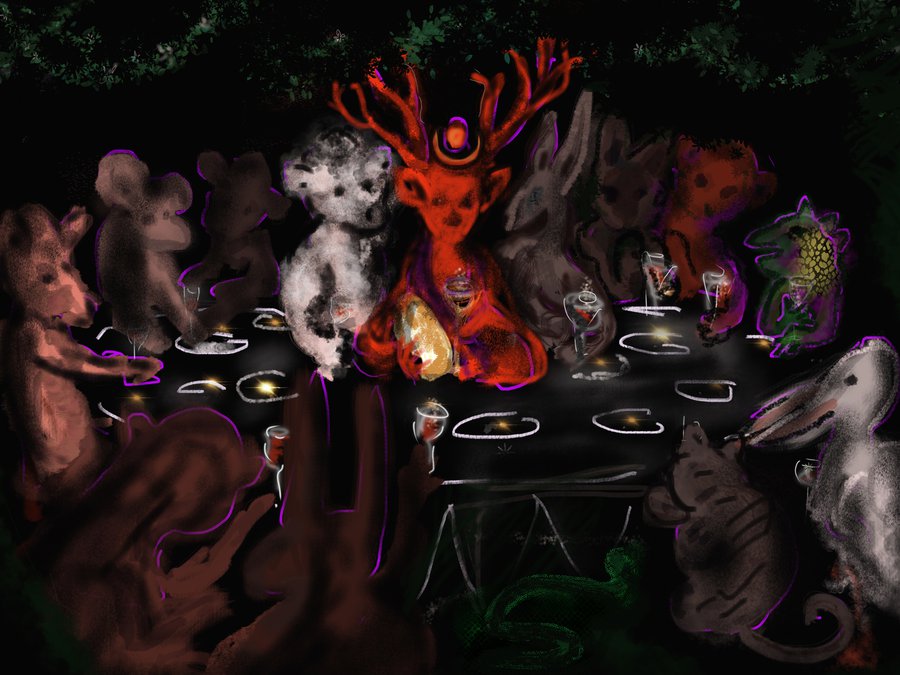
In Arcadia, Maya, daughter of Atlas, gave birth to twins, Dionysii and ate one of them. The missing 13th month is the hidden twin of May, the May Dionysus.
In the Old Testament, Eve was held responsible for the original sin. In my opinion, Abel, the deceased child, is the forbidden fruit. His mother, to hide the crime of her other son and unwilling to separate from Abel, ate him. Animals may be herbivorous or carnivorous. Primarily, humans are herbivorous. To eat meat, it must be cooked. The process of cooking is the beginning of magic. That is the reason why the Pythagoreans considered cooks to be magicians.
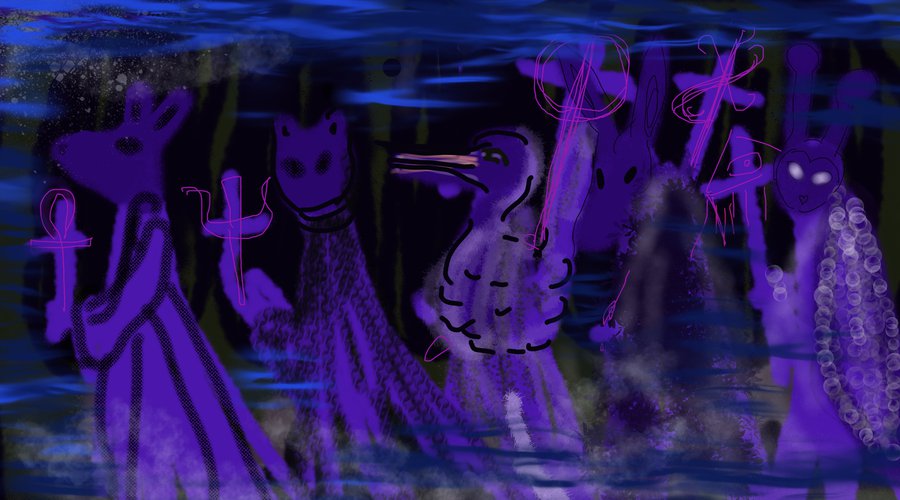
Eve, the Maenads, the Mother, and the Lovers preserved occult memory of the seed by protecting it in the fertile darkness of their wombs, like Isis, who merged with her dead lover and conceived from his spirit.
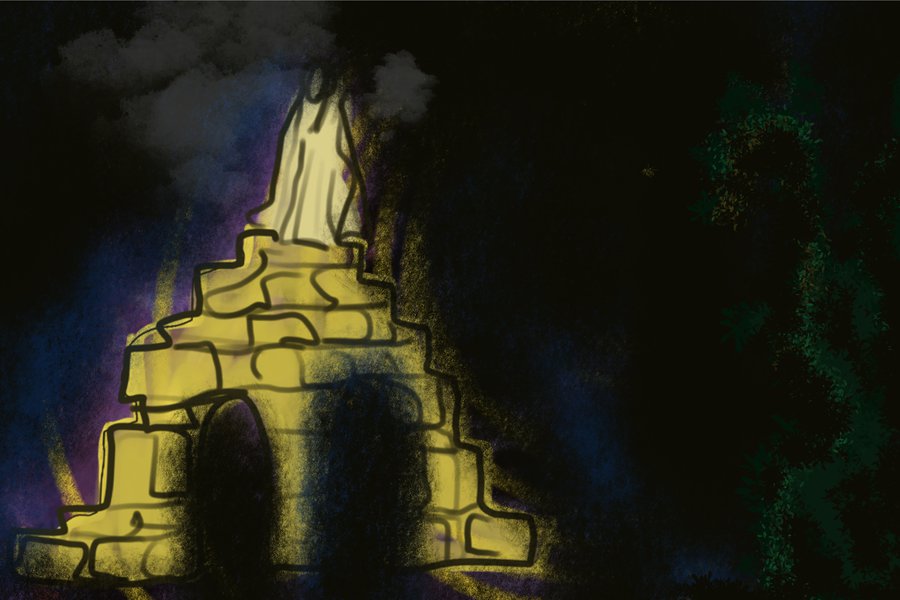
Inside the womb of the Mother Matter, the seed of her rape is annihilated and purified. Hera offered Dionysus the wine to destroy him, unwillingly empowering him with the greatest weapon to capture humanity.
All celebrations have a funerary element, mourning time, honoring the past, and manifesting the secret power of reunion. Emotion, sorrow, and pity are mundane luxuries of humanity. These funerary feelings became songs, monuments, and art.
There were and are periods of time and places where authority forbade and forbids the free pleasure to bring joy. They were and are forbidden songs, poems, and dances. It is still difficult to deprive people of the right to mourn as much as they want in their dark rituals.
The fool of the king, the burning straw man, the lamb of Easter, and the innocent victims are deities recognized through common sense and consciousness. The God opposed the violent instincts is glorified through his martyrs.
In the feasts of Dionysus, the followers do not seek revenge. On the contrary, they demonstrate through the repetition of the rebirth ritual the Victim’s unjust sacrifice. Instead of revenge, they strive for catharsis, embodying their sacrifice to become glorified.
“Behold the Bridegroom comes in the midst of the night.”
Castrated, beaten, disfigured, dead. His disciples clothe him, perfume him and kiss him.
The emperors, the gods of war and power, even in the democratic spirit of the Twelve gods with their hierarchy of deities, lack the sentiment of the earthly Gods who will always be naturally preferred by the humans.
That is why forever and ever, the Peacemaker, the calm Shepherd, the dead Student, the lost Activist, the Orphic Poet, the Little Prince, the Boy adorned with a crown of thorns, or an animal horn, will always be worshiped and elevated into a secret religion.
As a symbol of abuse, it will always attract the uncontrollable rage, fear, and jealousy of mankind, turning it into a mute universal scream and an erotic maternal pain, an unarticulated cry of the universe, an unfortunate Thirteenth Month.
Lydia Venieri
Maroussi, 2023